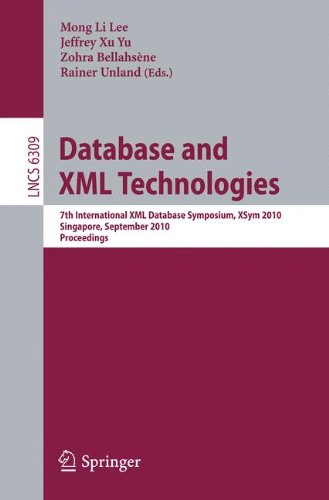

Most ebook files are in PDF format, so you can easily read them using various software such as Foxit Reader or directly on the Google Chrome browser.
Some ebook files are released by publishers in other formats such as .awz, .mobi, .epub, .fb2, etc. You may need to install specific software to read these formats on mobile/PC, such as Calibre.
Please read the tutorial at this link: https://ebookbell.com/faq
We offer FREE conversion to the popular formats you request; however, this may take some time. Therefore, right after payment, please email us, and we will try to provide the service as quickly as possible.
For some exceptional file formats or broken links (if any), please refrain from opening any disputes. Instead, email us first, and we will try to assist within a maximum of 6 hours.
EbookBell Team

4.8
94 reviewsSince its first edition in 2003, the XML Database Symposium series (XSym) has been a forum for academics, practitioners, users and vendors, allowing all to discuss the use of and synergy between database management systems and XML. The symposia have provided many opportunities for timely discussions on a broad range of topics pertaining to the theory and practice of XML data management and its applications. XSym 2010 continued this XSym tradition with a program consisting of 11 papers and a keynote shared with the 36th International Conference on Very Large Data Bases (VLDB 2010). We received 20 paper submissions, out of which 8 papers were accepted as full papers, and 3 as short papers. Each submitted paper underwent a rigorous and careful review by four referees. The contributions in these proceedings are a fine sample of the current research in XML query processing, including XPath satisfiability, approximate joins, pattern matching, linear index construction for trees, dynamic labeling, and XQuery update translation based on schema. The papers focus on recent advances in detecting fu- tional dependencies, modeling complex XML twig pattern output, promoting sem- tics capability of XML keys, and searchable compression of Microsoft office do- ments. In addition, we include a paper that shares lessons learned from real XML database development.